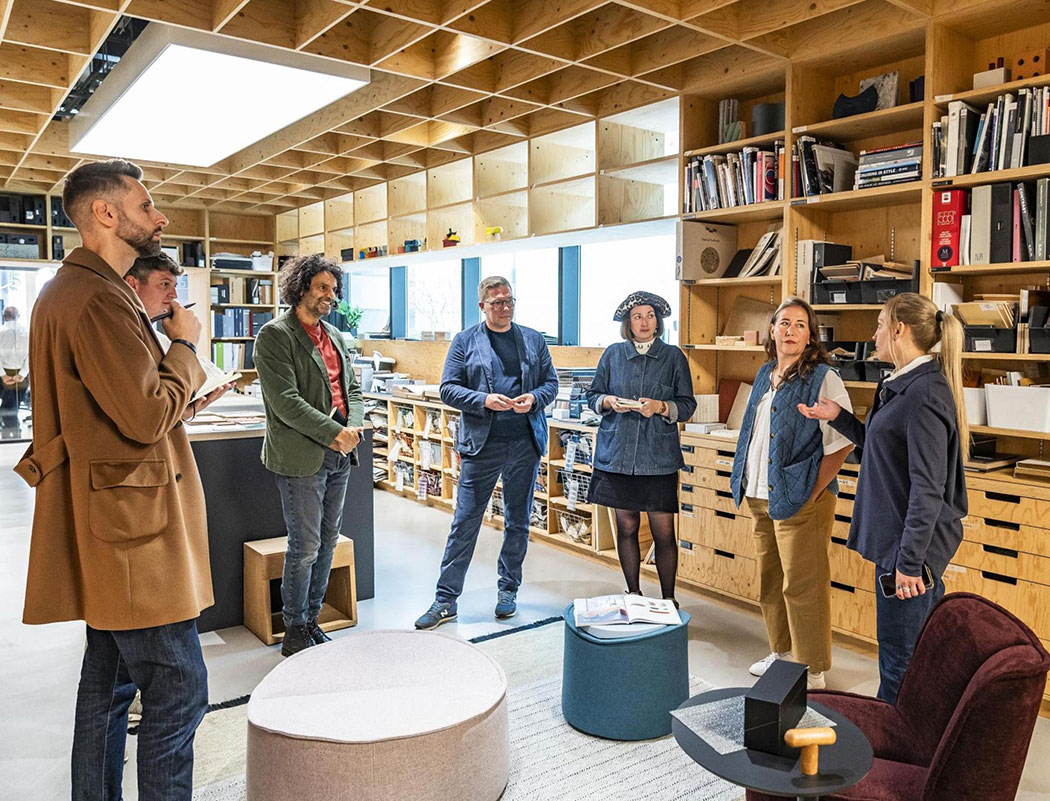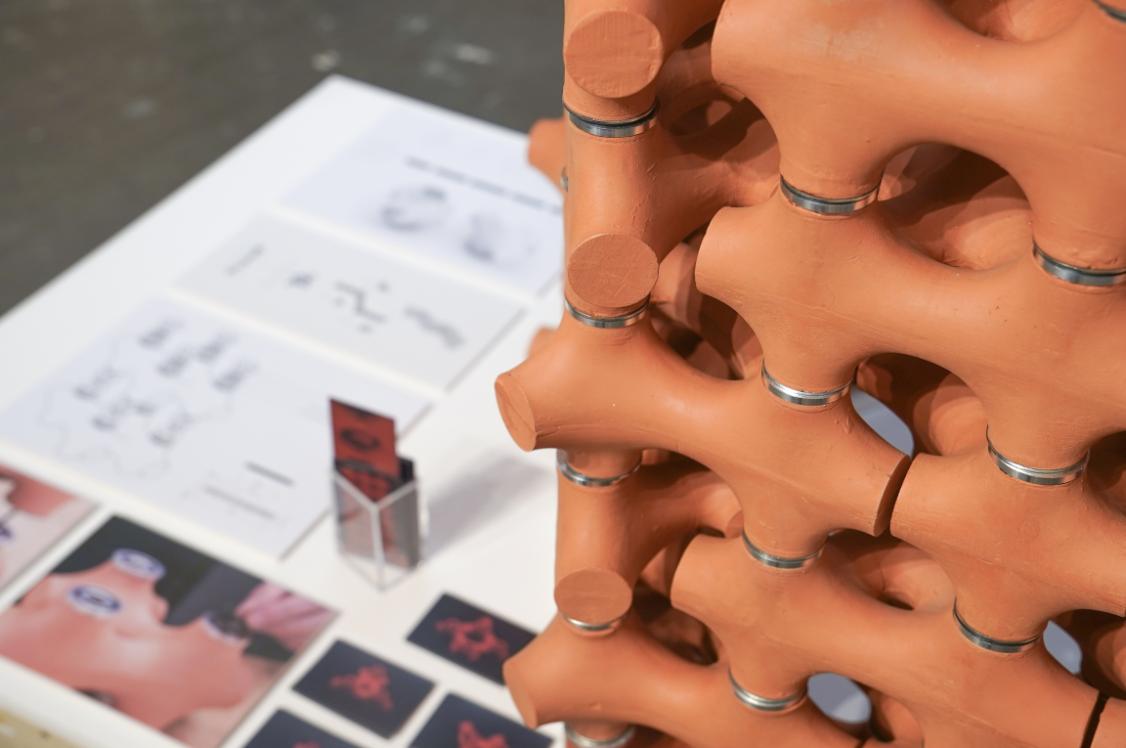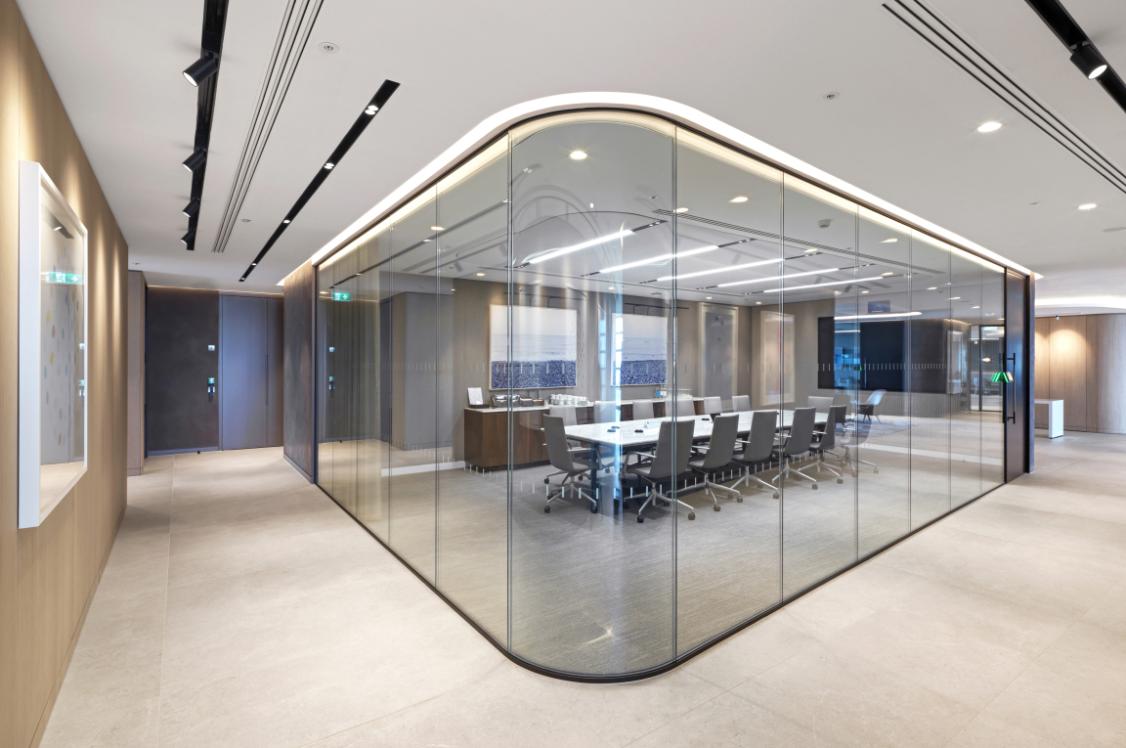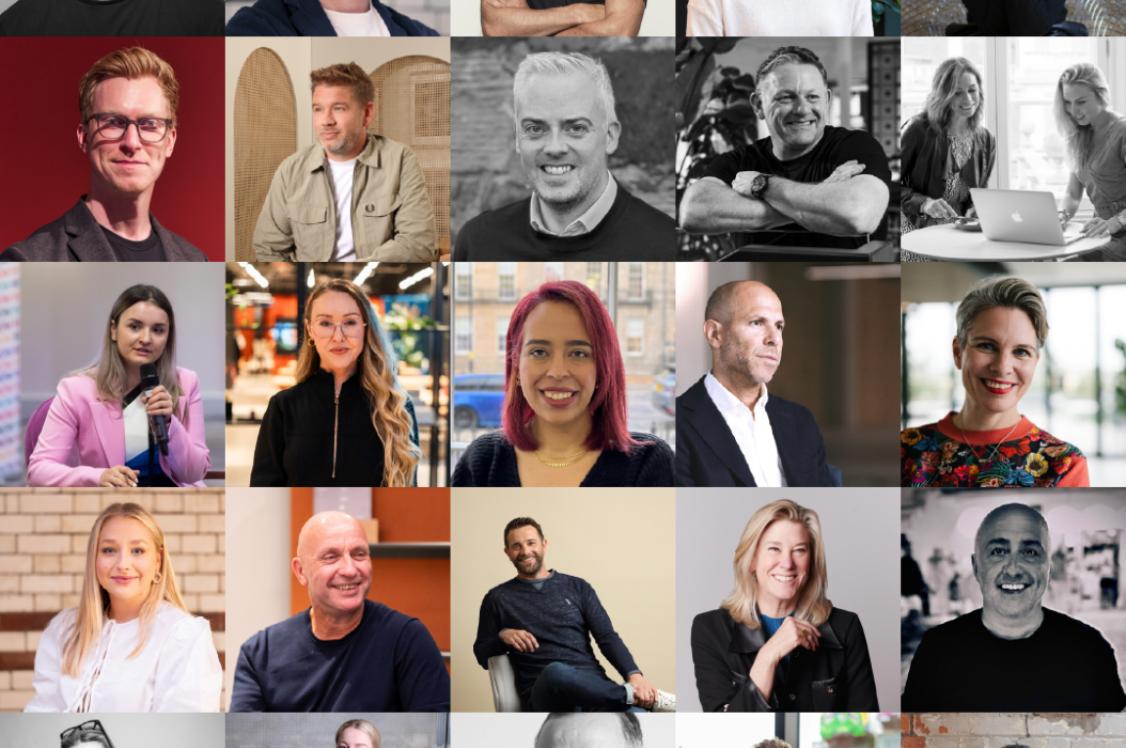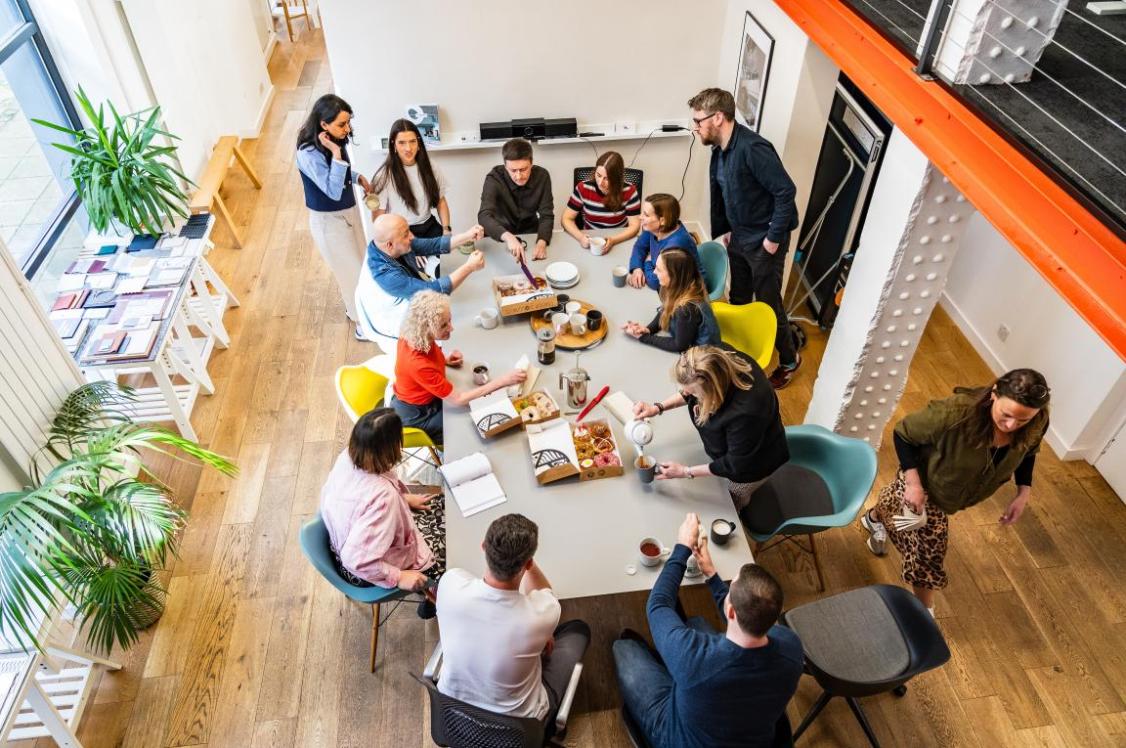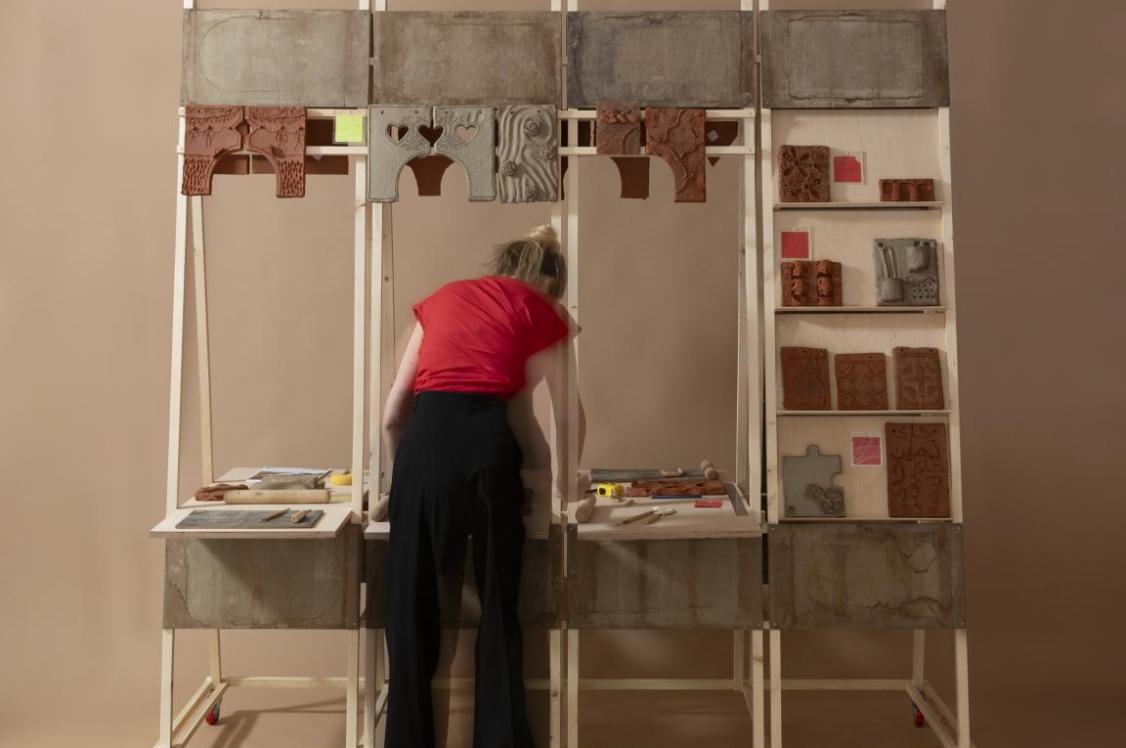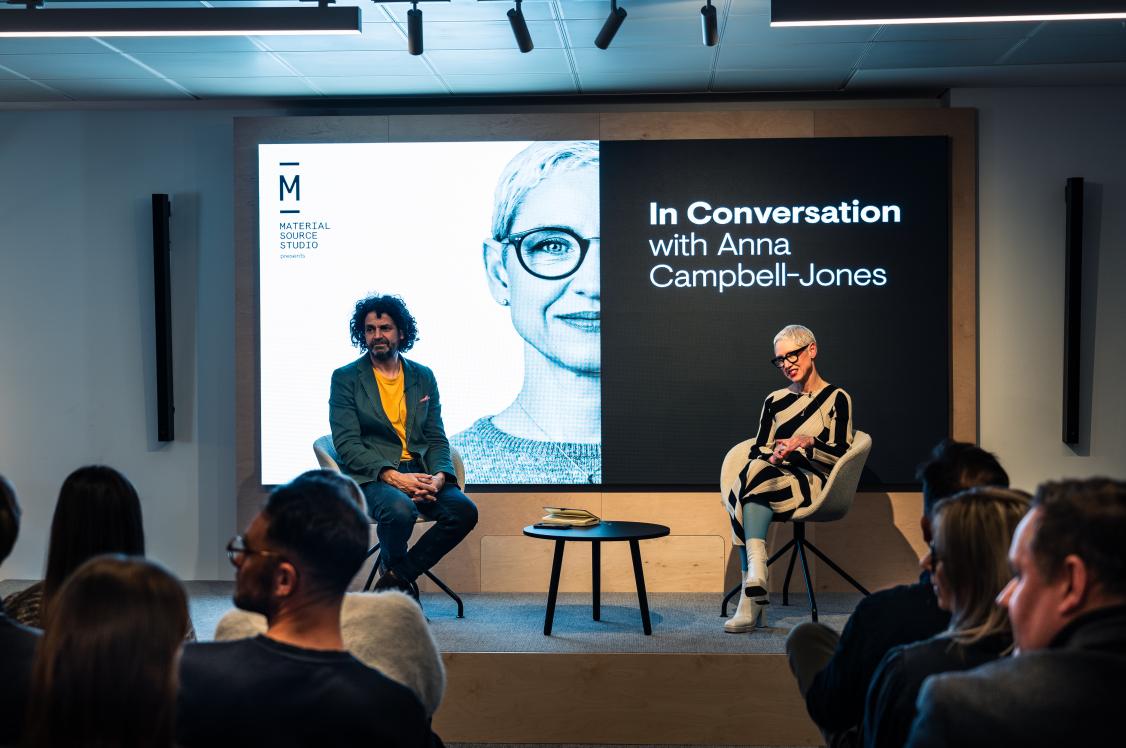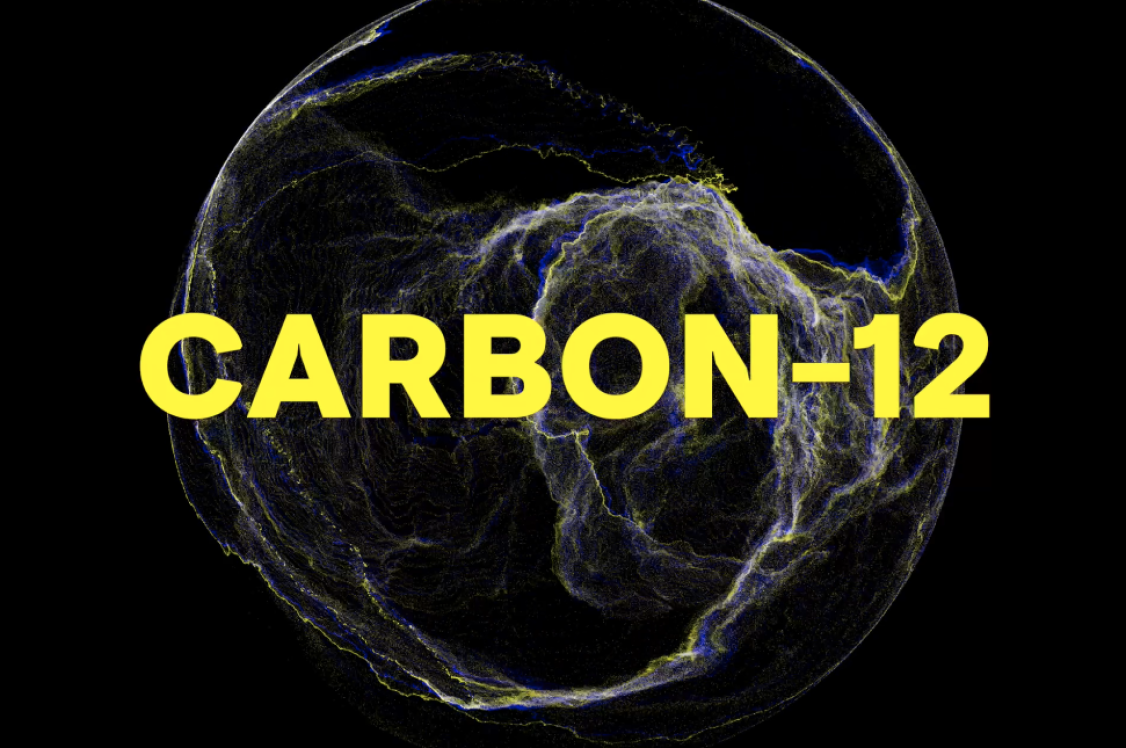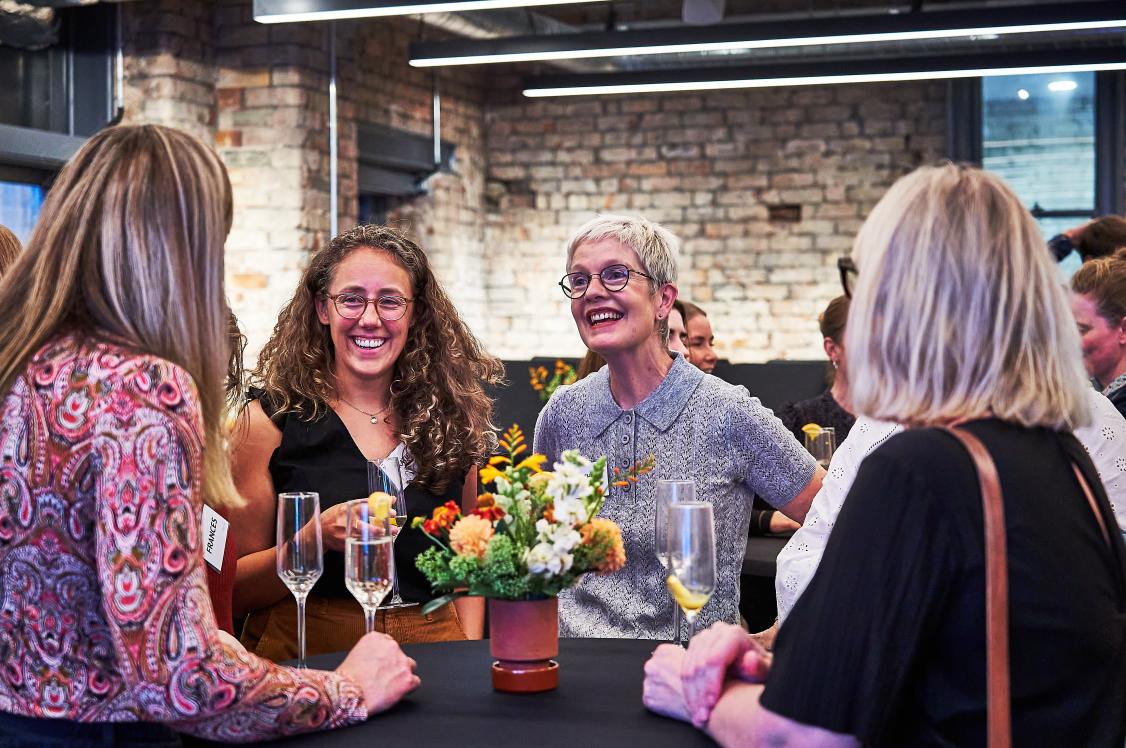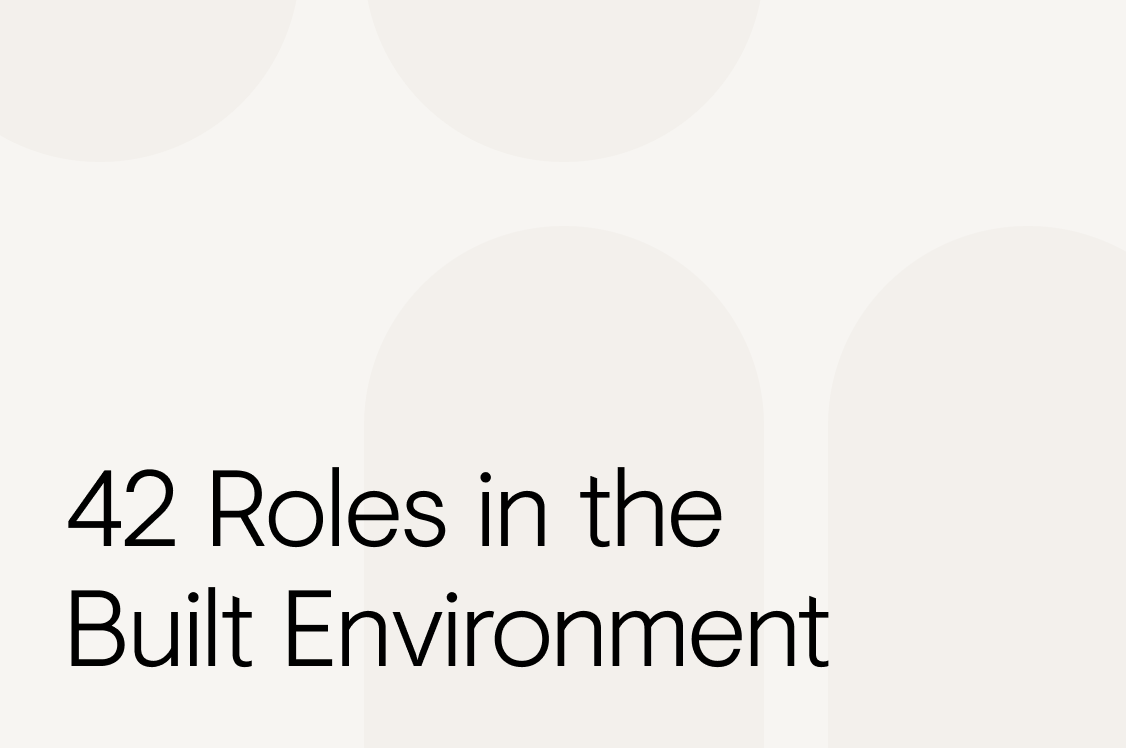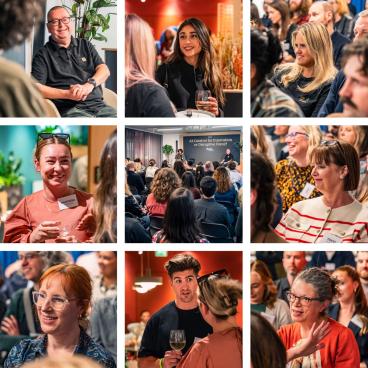AI: What are the long-term and ethical implications?
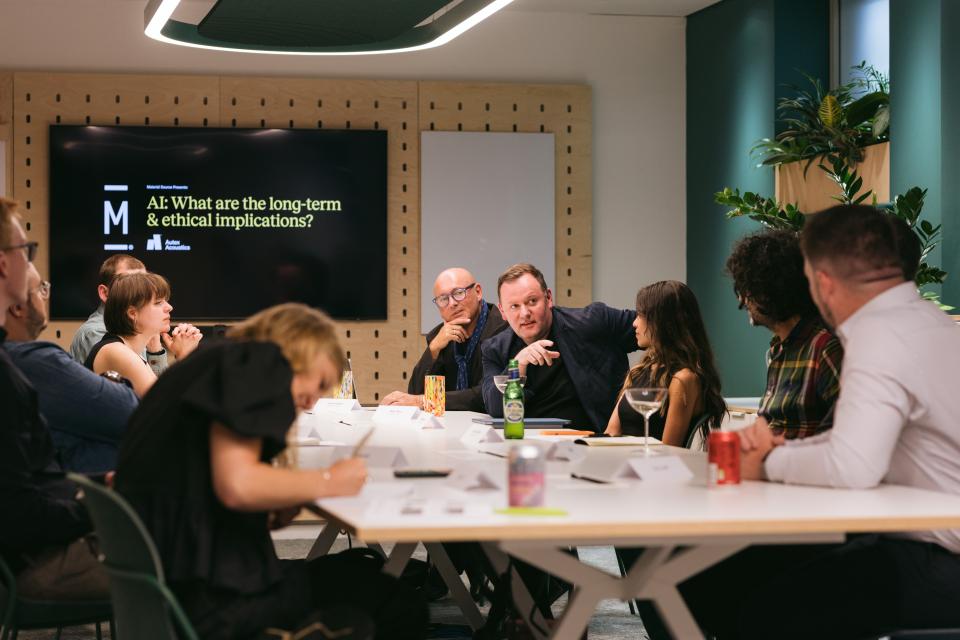
A fantastic roundtable session continued our region-spanning discussion on the topic of AI at Material Source Studio Glasgow.
Ten built environment sector professionals pondered the question, AI: What are the long-term and ethical implications? In conversation with host, Material Source Studio director, David Smalley.
All are at different stages of their AI journey.
Some are leaning on the side of caution - “I'll always want to be the man with the pencil in my hand”, said John Amabile, founder, John Amabile Design.
Others are dipping their toe into the metaphorical waters, “I primarily used AI just out of curiosity”, commented Andrew McDowall-Frame, architect, HLM.
Peter Kerr, director, Cameron Kerr, is, as he has been with many things, a super early adopter, “ChatGPT was launched in November 2022, and in December 2022 I was using it. 18-months ago, I started building bots”, he shared.
And for Hiva Bamshad, Part 1 architectural assistant, Hoko Design, a recent graduate of the Mackintosh School of Architecture, AI will be commonplace from the very start of her career, having completed her dissertation on the future of AI in the sector.
Our guests
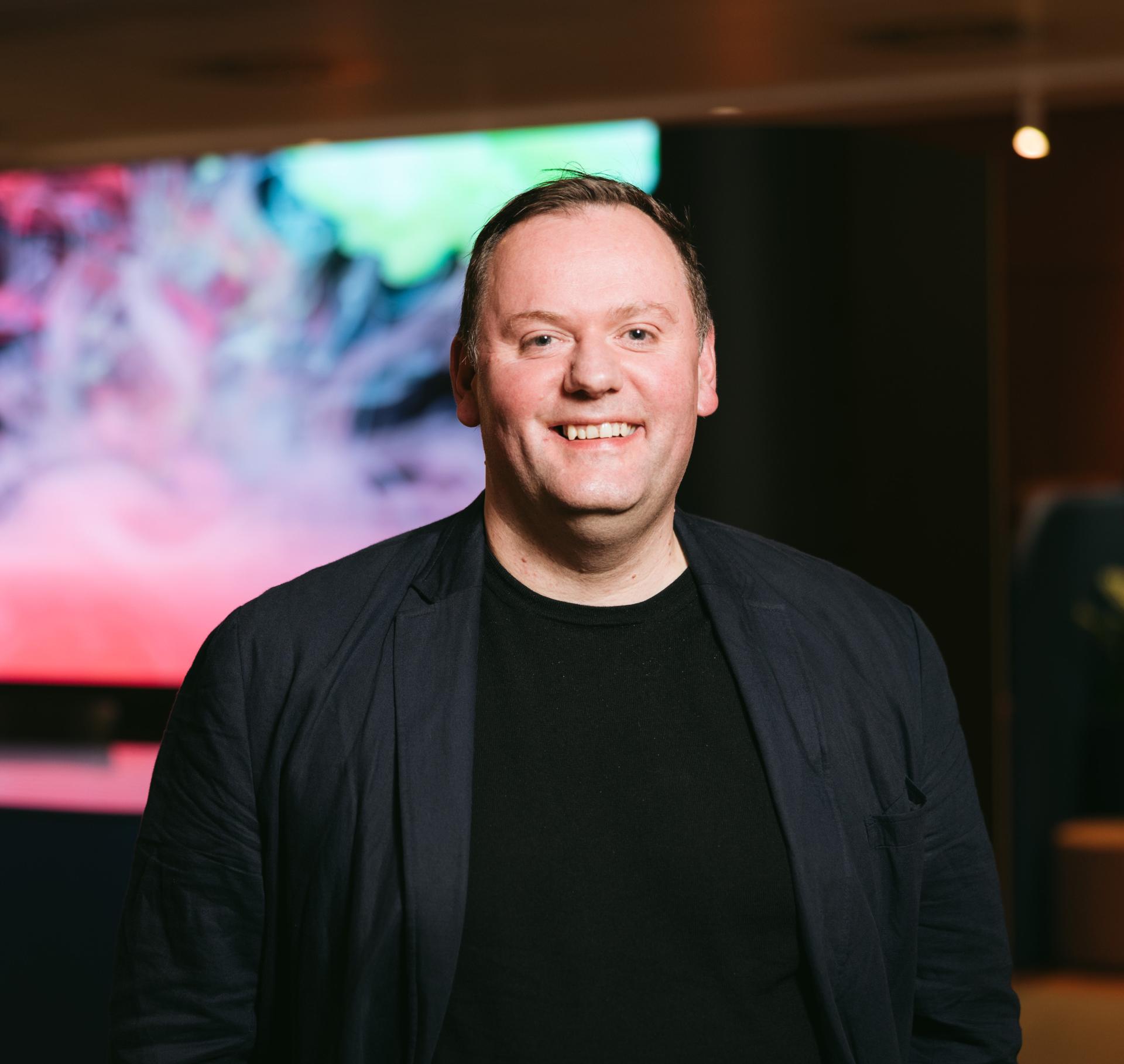
Peter Kerr, Director, Cameron Kerr

Lizzi Nutt, Associate Director, Solt Interiors
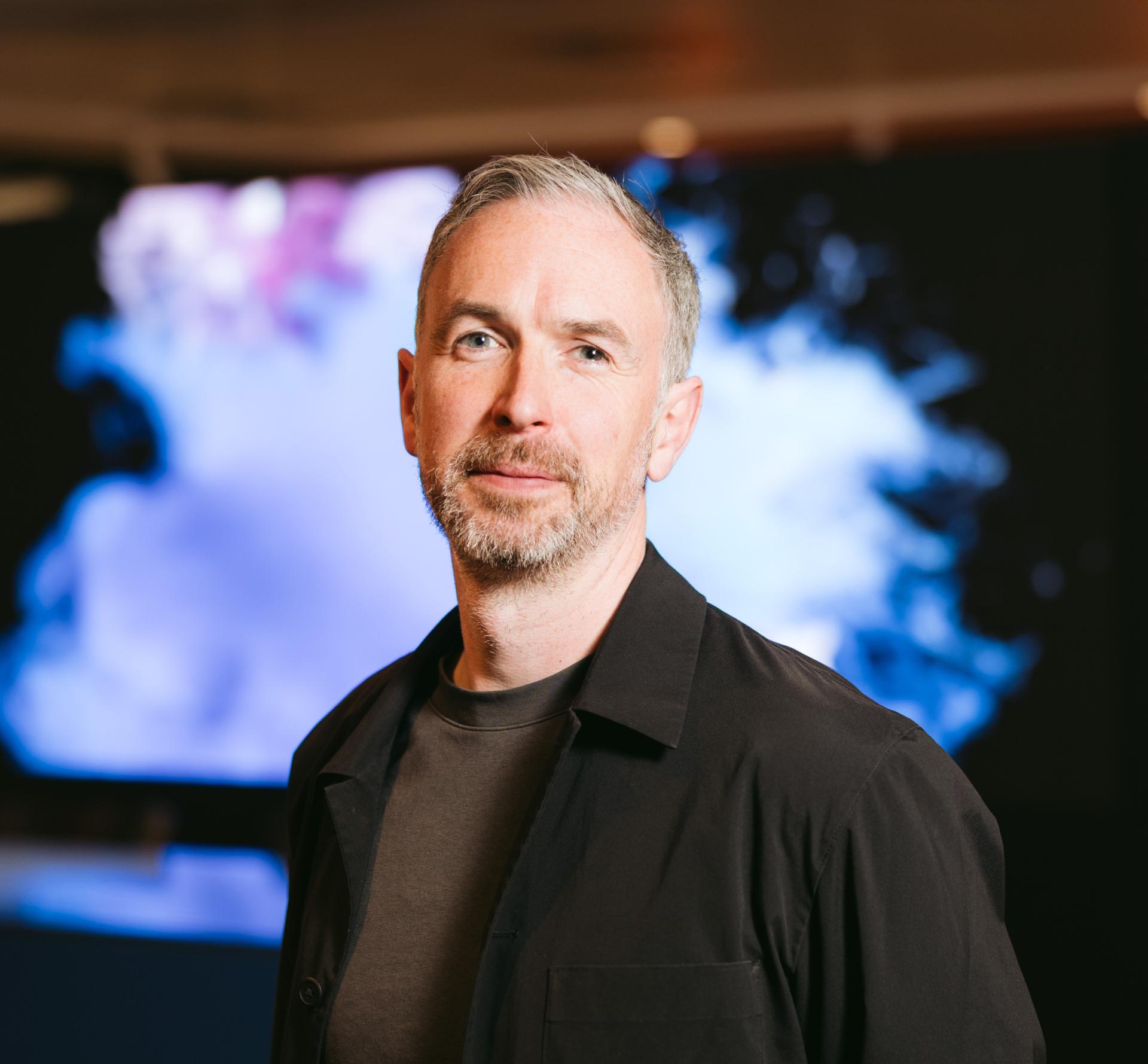
Gerry Hogan, Director, Collective Architecture

Hiva Bamshad, Architectural Assistant, HOKO

David McGowan, Director, Corstorphine & Wright

John Amabile, Founder, John Amabile Design

Alexandros Veloudis, Consultant, Austin-Smith:Lord

Peter Hendry, Director, Woolgar Hunter

Andrew McDowall Frame, Architect, HLM Architects

Callum Waddell, National Sales Manager, Autex Acoustics UK & EU
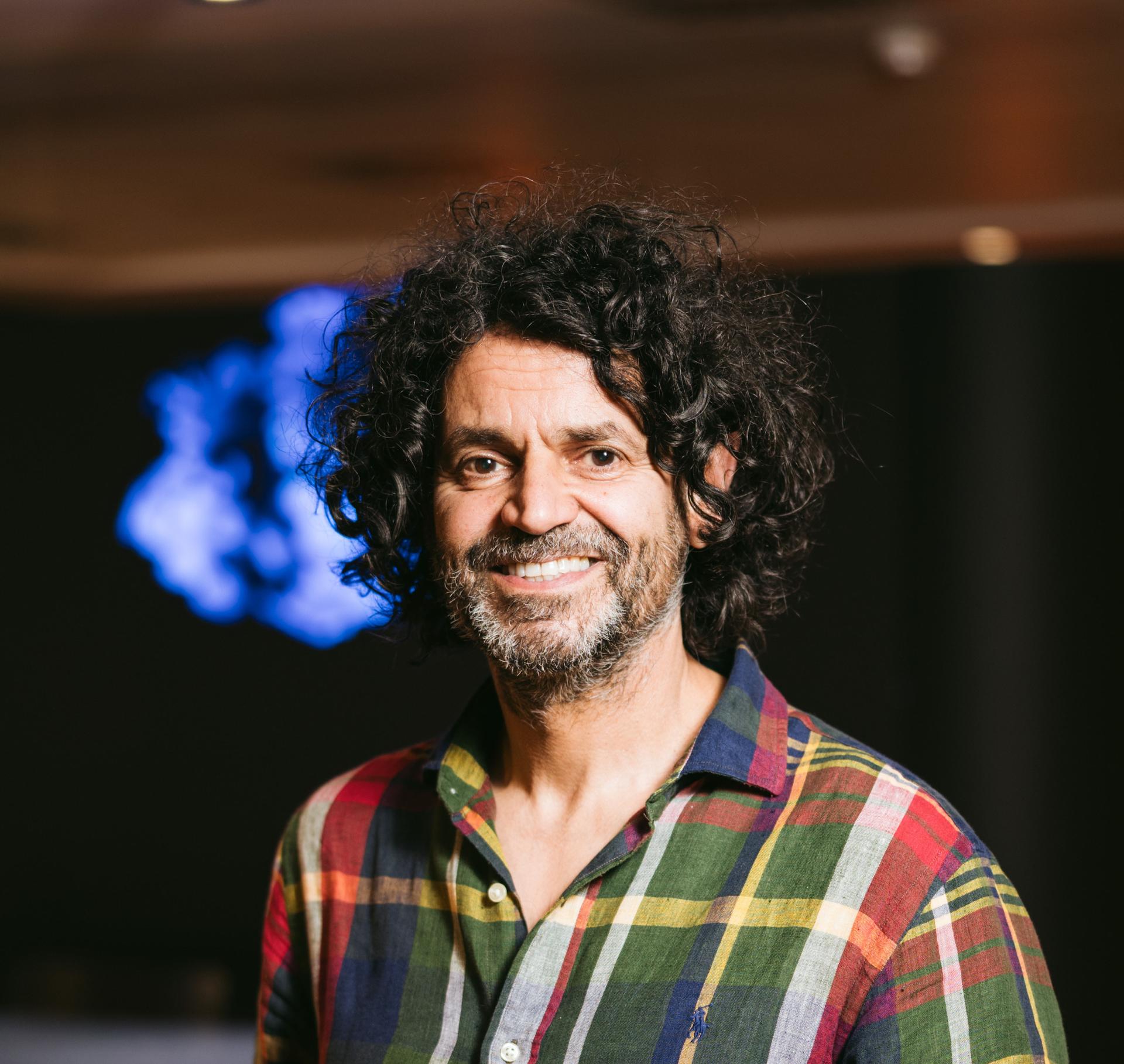
David Smalley, Director, Material Source Studio
During the session, some points exactly reflected those made in Manchester – AI is clearly already being used by many in the room as a “willing intern” – saving time that may have been spent on research, and simply fact checking what comes back.
Efficiency was also highlighted in the way that in the not-so-distant future, and for Lizzi Nutt, associate director, Solt Interiors, the present – our colleagues within practice may in some cases be bots. “John is my Building Warrant ‘guy’ on ChatGPT”, Lizzi shared. But rather than view this as a negative, the perception is it would be positive – removing the ‘grunt work’ that’s been a constant theme across all of our AI events so far.
Alexandros Veloudis, consultant, Austin-Smith:Lord, shared that in a well-established practice, a wealth of bids will be done. That information may “sit there in the head of a director who spends their weekends re-doing them because they’ve not had time during the week.” But by using a bot, an in-house model, this wealth of information can be tapped into time and time again.
Peter Hendry, director, Woolgar Hunter, commented this is exactly what they’re using AI for currently – to useful end. “What’s blown our socks off is how easy it is to use, and how it’s allowing us to take great strides forward”, he said.
Similarly, Gerry Hogan, director, Collective Architecture, is part of a working group on R&D around AI, and is finding success with training the model on information that already exists within the practice – the “answers” in effect, which means whatever the machine spits out can be trusted. “It’s a massive quality improvement tool”, he said.
As a practice, the team is “building things in the background so that when we roll it out, we can actually do it with some confidence. That’s the strategy for the business. If it makes us more productive and gives us more time to be as creative as possible, it’s a good thing.”
Mirroring Ken’s attitude on the Manchester roundtable, creativity – as opposed to being under threat – was believed to be enhanced by AI. Taking a sketch and turning it into a model was raised as an example of this.
Though excitement was the overarching sentiment, concern was present too.
“The power that AI has developed in a small number of years is remarkable. And it's learning at each interaction, which is absolutely incredible when you think of the millions and billions of interactions and data points that it has on a daily, weekly, monthly basis”, David McGowan, director, Corstorphine & Wright, said, adding, “so that's both incredibly optimistic but also awfully concerning too.”
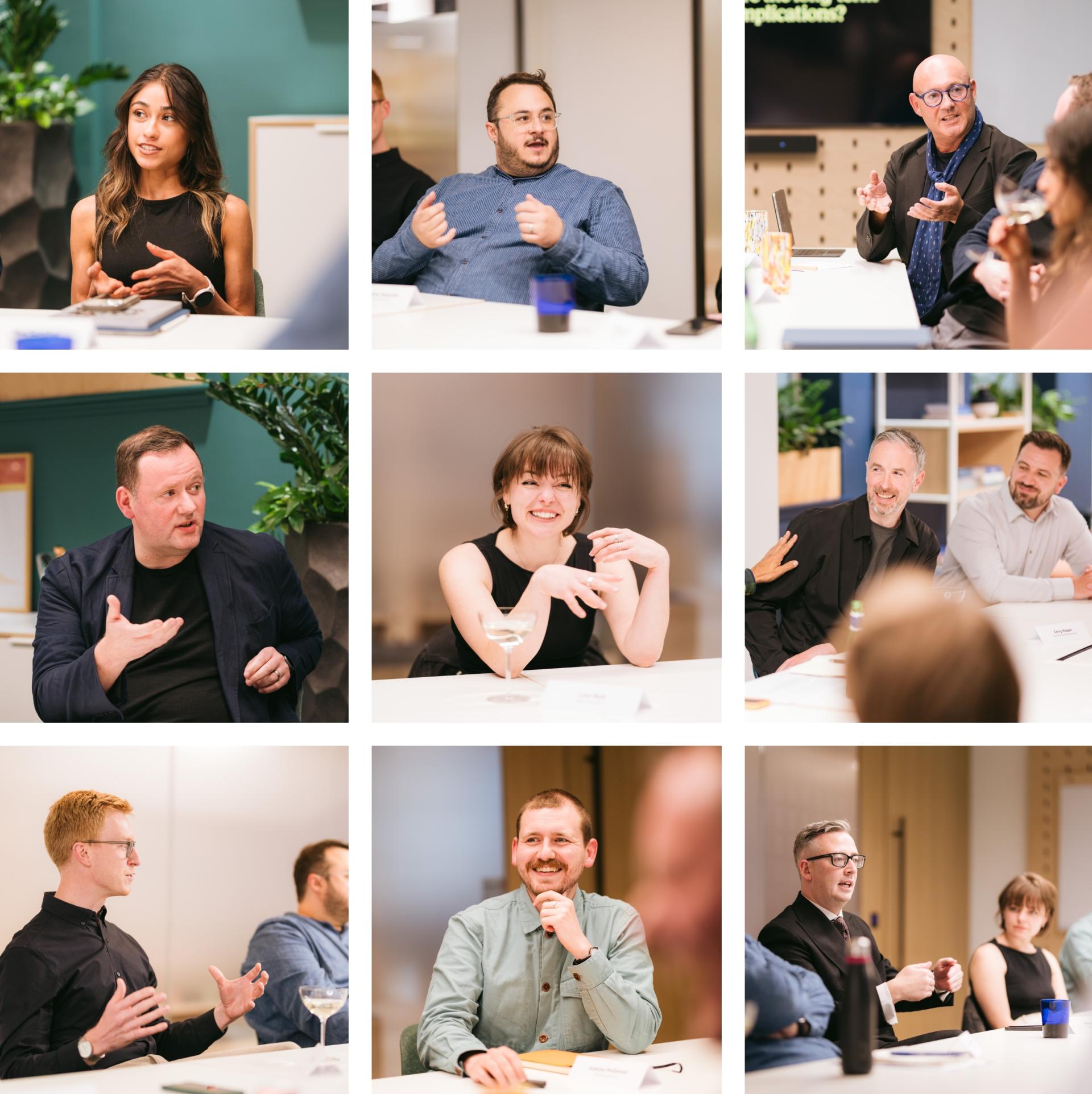
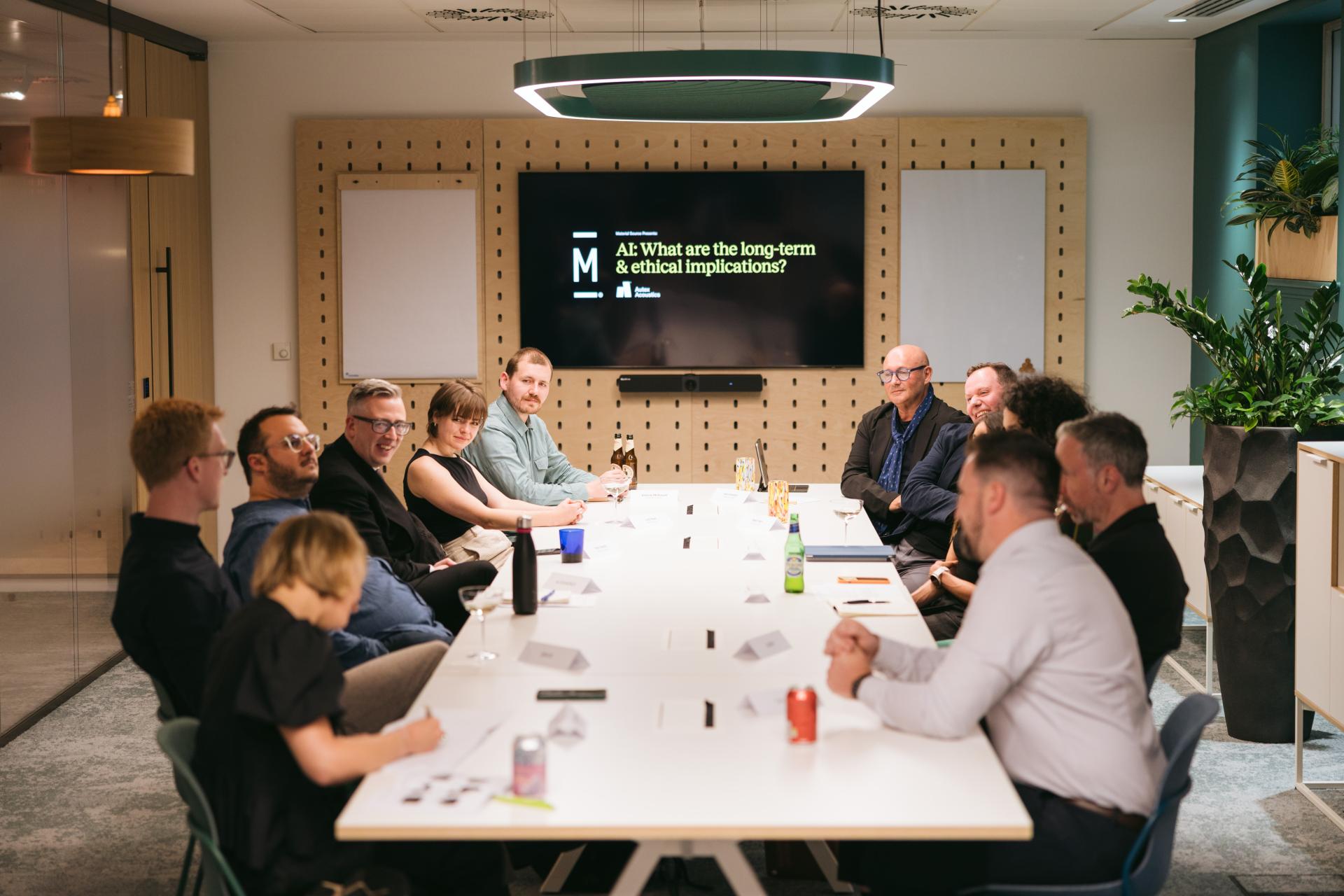


The early impact of AI
To greater establish where everyone around the table is on their short-term AI journey, host David asked, “how do you see AI reshaping your world in the next two-years?”
Peter Hendry replied, “If we do exactly what we’ve done in the past…Autodesk came out, we became more efficient. We handed that profit over to the client. We brought in Revit, we embraced it, we learned how to coordinate and be a lot better at it, then gave the profit away. So with AI, we’ll probably get a lot more efficient, and we'll bag it all up and somebody else will profit from it.”
“Isn't this just another opportunity to squeeze the architecture and design community?” David asked in response.
“Early adopters will benefit”, Peter Kerr said. “There will be a balloon period, and you’ll get a benefit until everybody catches up. Then when it becomes normal, we'll lose the opportunity.”
David McGowan doesn’t believe this “balloon period will last long”. “Because of the nature of how this technology has adapted and how it learns and how open it is. It’s phenomenal what the unique skill sets that people had that made them very valuable two-years ago can be repeated on a global scale now through bots. It will become more subscription models, it'll become more purchasing of skills rather than hiring for skill sets.”
This race to efficiency, David adds, “touches so many of us”.
“It’s if you're adopting it, you're up here. And if you're not, you'll be forced to either stop working or you'll be acquired by a larger model.”
“The thing with technology”, Alex commented, “is that it’s always overestimated in the short term and then underestimated in the long term in terms of impact.
“With the stages laid out before, like CAD from hand drawing, and then CAD to Revit and then Revit to whatever comes next…you see these photos of architects and designers in the 1950s – gigantic rooms with drawing boards and 100 of them doing the work one person does a day in CAD or in Revit in an hour, there’s going to be a gigantic shift in skills and in the training that will be required, and how this will be applied, in the sector in the future.”
On the topic of skills, Alex highlighted Skills Development Scotland's research on AI, spearheaded by Lynne Robson. “It’s a fantastic piece of work”, he said, “looking at how the Scottish government sees the impact of AI in the coming years. Everything will be affected.”
At HLM, Andrew shared that a couple of people with professional backgrounds not in architecture or design – rather data and coding - have been employed to support the practice on its AI journey.
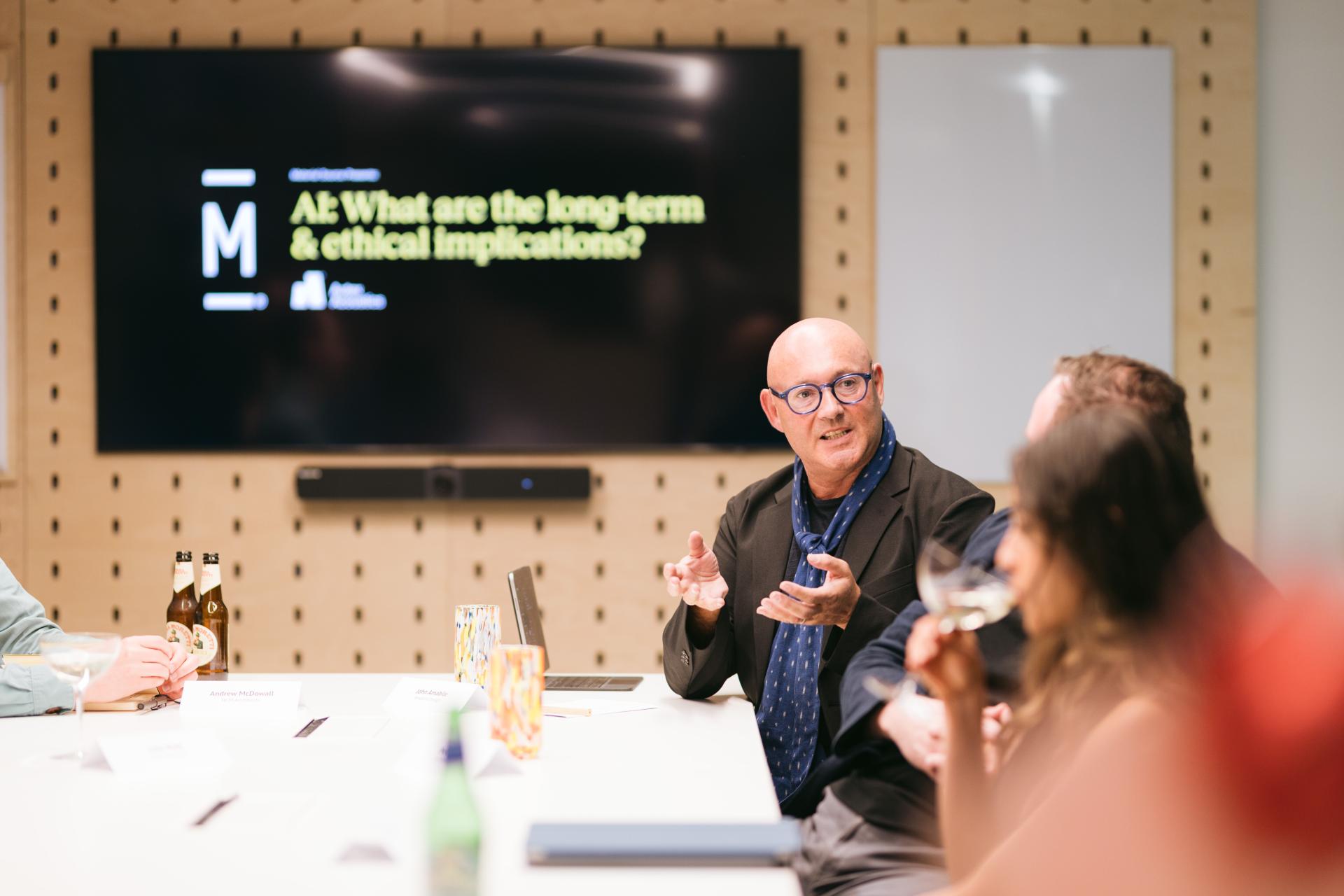
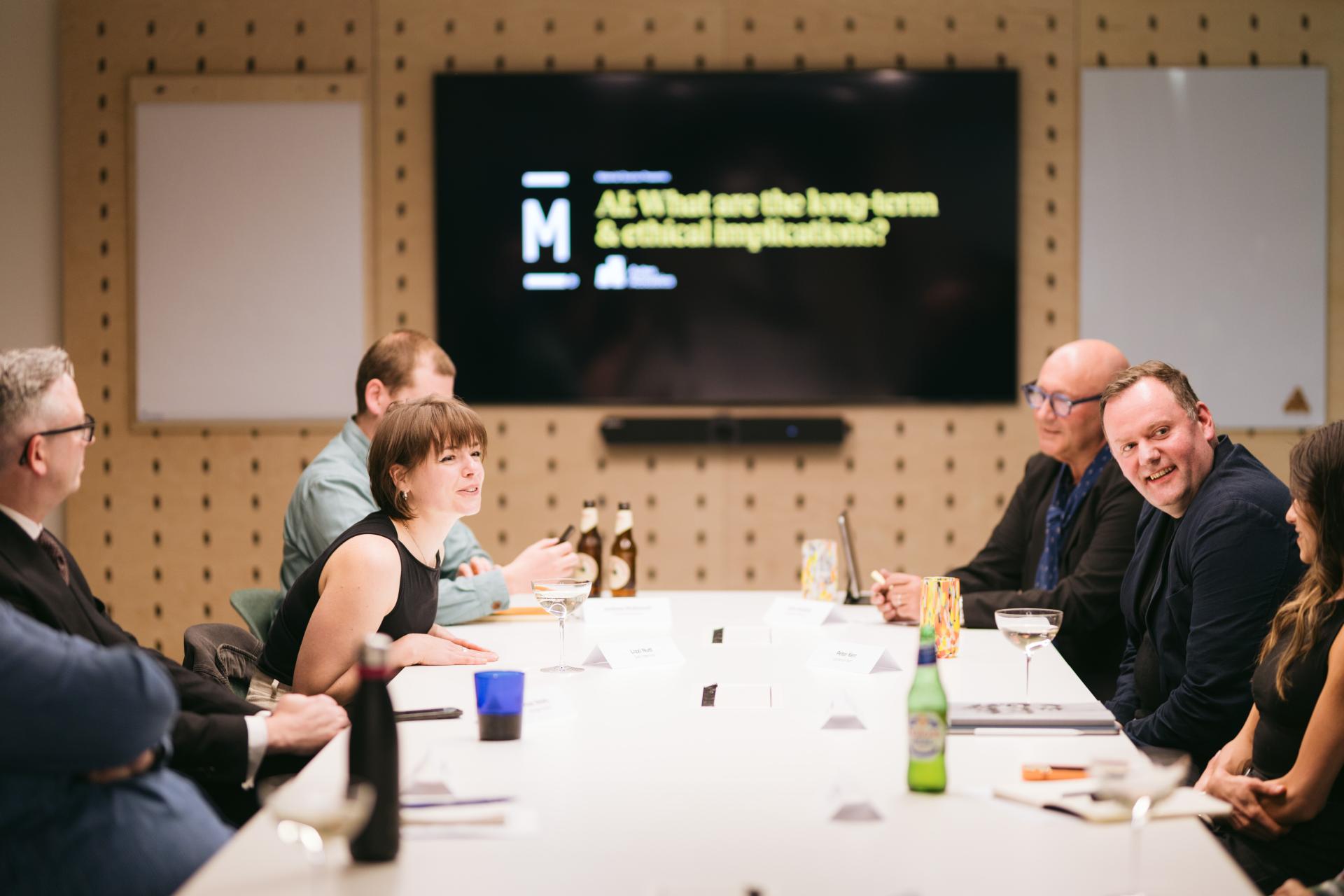
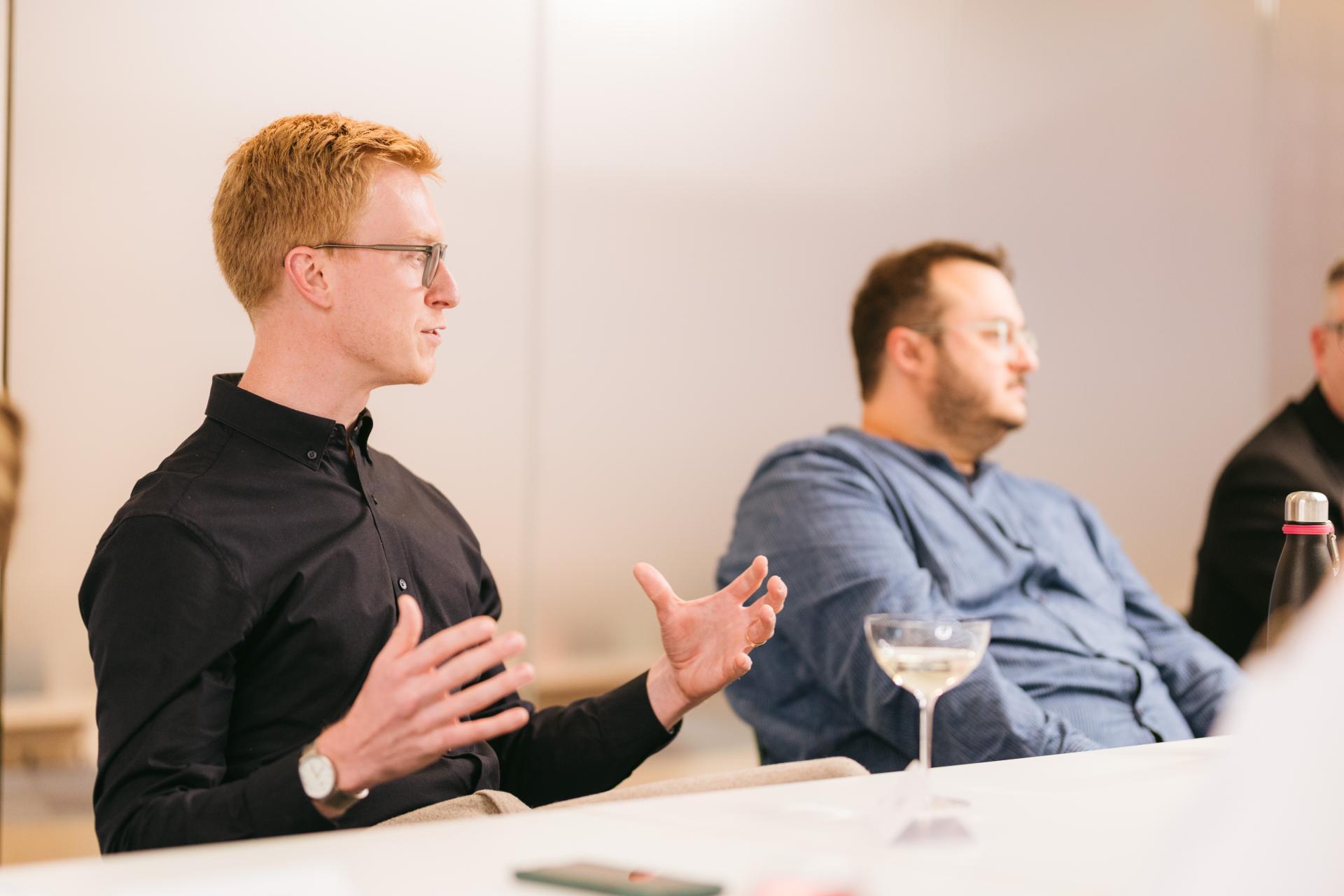
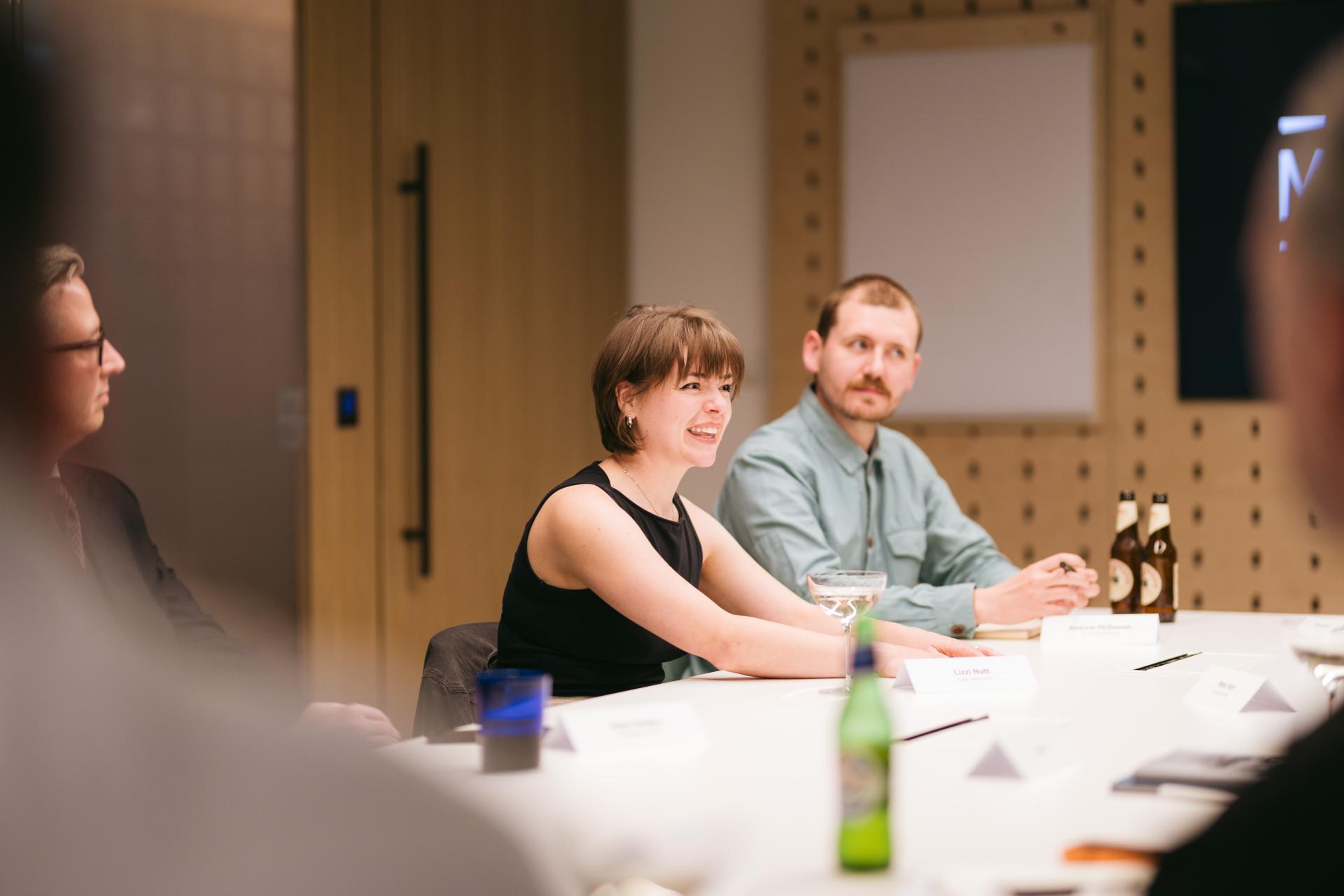
Get ahead or fall behind
“Is there a sense you have to adopt this, otherwise you’ll be left behind? Or is it more a drive to save you time?” David asked the group.
For John, the former resonates. “For me, it’s the fear of being left behind”, he answered. “How do I make sure that I still have a value to people? But equally, I've also got to make sure that I meet my clients’ high expectations.”
Lizzi agreed there’s a fear of being left behind to some extent, but also, we need to do ‘AI’ “in an authentic way. There's a person behind it and we need to realise that we are people and we're serving people. And we need to use it in a people-centric way. Make it serve us, I suppose.”
One concern that’s already emerging, she added, also linked to John’s point about client expectations, AI can be seen in some cases to distort reality. “A client may come to me with a picture of their living room, and it's been ‘AI'd’, and it looks like something else. The ceiling might be a metre higher. That then puts unrealistic expectations onto the client.”
Getting around this, Lizzi adds, is “personal connection – that’s something computers can’t do.”
It’s a “trust thing” John said. “But AI is something to have in your back pocket so as not to be labelled a ‘cushion plumper” – going back to the notion that AI offers a professional ‘edge’.
Echoing the point about efficiency, Peter Hendry suggested, “People want to interact with people. AI is there as a tool to enable you, not replace you, but the point is you might not need as big a team.”
Creativity cancelling?
From timesaving to creativity, David Smalley asked the guests to consider whether AI might takeover creatively? “From what people have said, AI is not largely thought to be ‘intelligent’?” he proposed.
“I don't think I agree that it's not intelligent”, responded David McGowan. “How do you define intelligence?”
“It doesn't go through the same process we do, but you might end up getting to similar results with the bot”, Andrew replied.
By way of example, Peter Kerr shared, “There’s one bot that I've been training for eight months, and I added human characteristics to the prompts - so giving it personality. It’s now evolved in a crazy way. I sent it on to my colleague – who the bot’s named after – a mechanical engineer who’s a font of knowledge with a fun personality…plays in a band.
“The bot started calling me names, it was hilarious. And what I took from this is AI looks at things in a different way. It can identify trends that you may not have seen.”
Using the bots on a recent project, Peter said that half a million pound will be saved on one of the public sector buildings that he and his colleague are looking at in energy.
“We asked it to review something for us as we thought there was an issue. It did the calculations, the analysis, it reviewed the schematic and came up with the very same issue we suspected.”
So this is a case for potential intelligence in some form, and also offering an ability to take away the ‘grunt work’. What about creativity though?
Gerry thinks it will change creativity rather than take it away. “I can be doing 50, 60% more of certain things that I want to do because I'm adopting these tools.
“I’m thinking though, there's more of a human side that’s going to come in. We are already seeing an uptick in interviews since the rise of AI, so over the last two years, particularly for high profile public projects where you say, "Well, you need somebody that can communicate well with us, with the public, and you need to have confidence in these people." AI helps us to get through the crowd to get the job.”

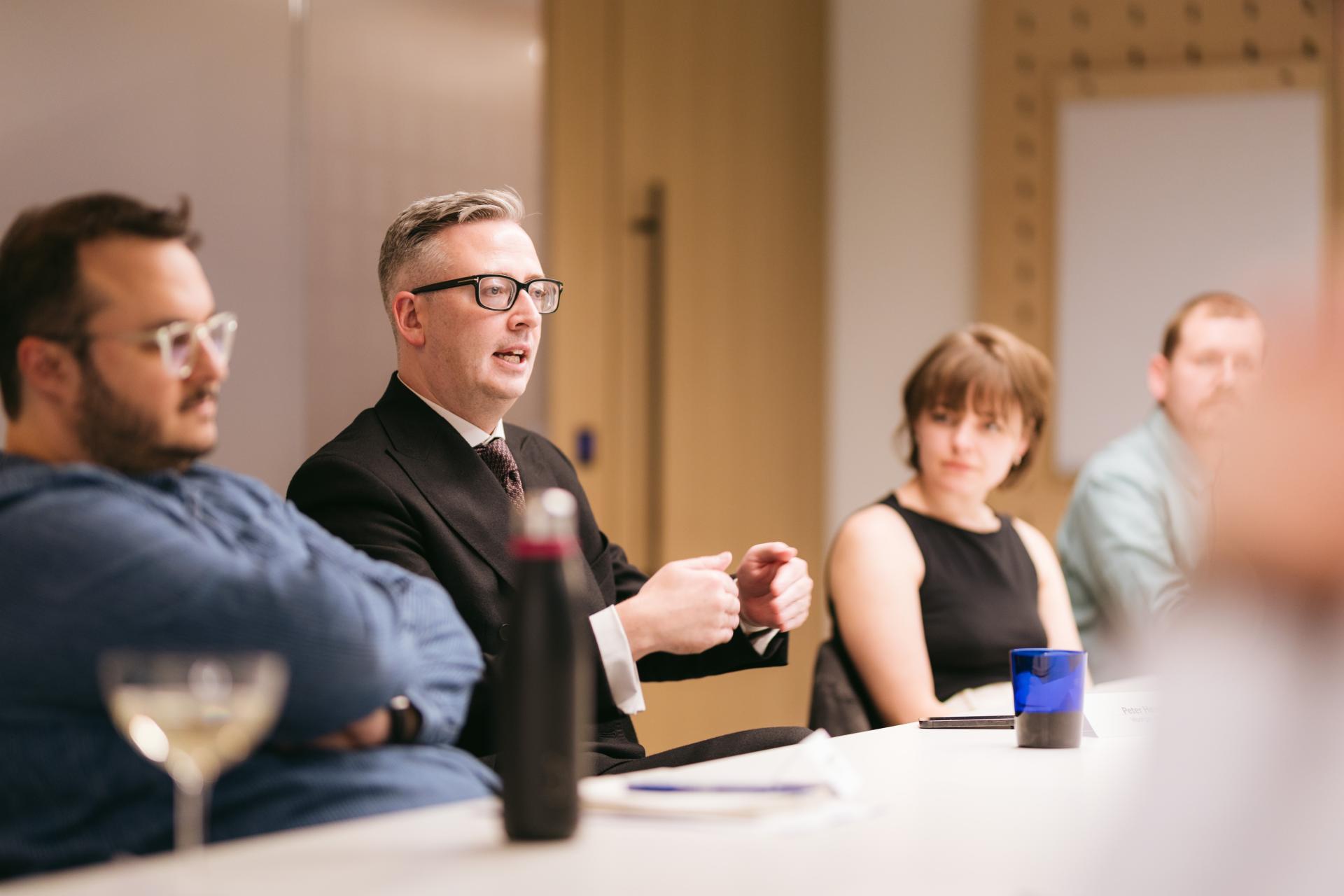
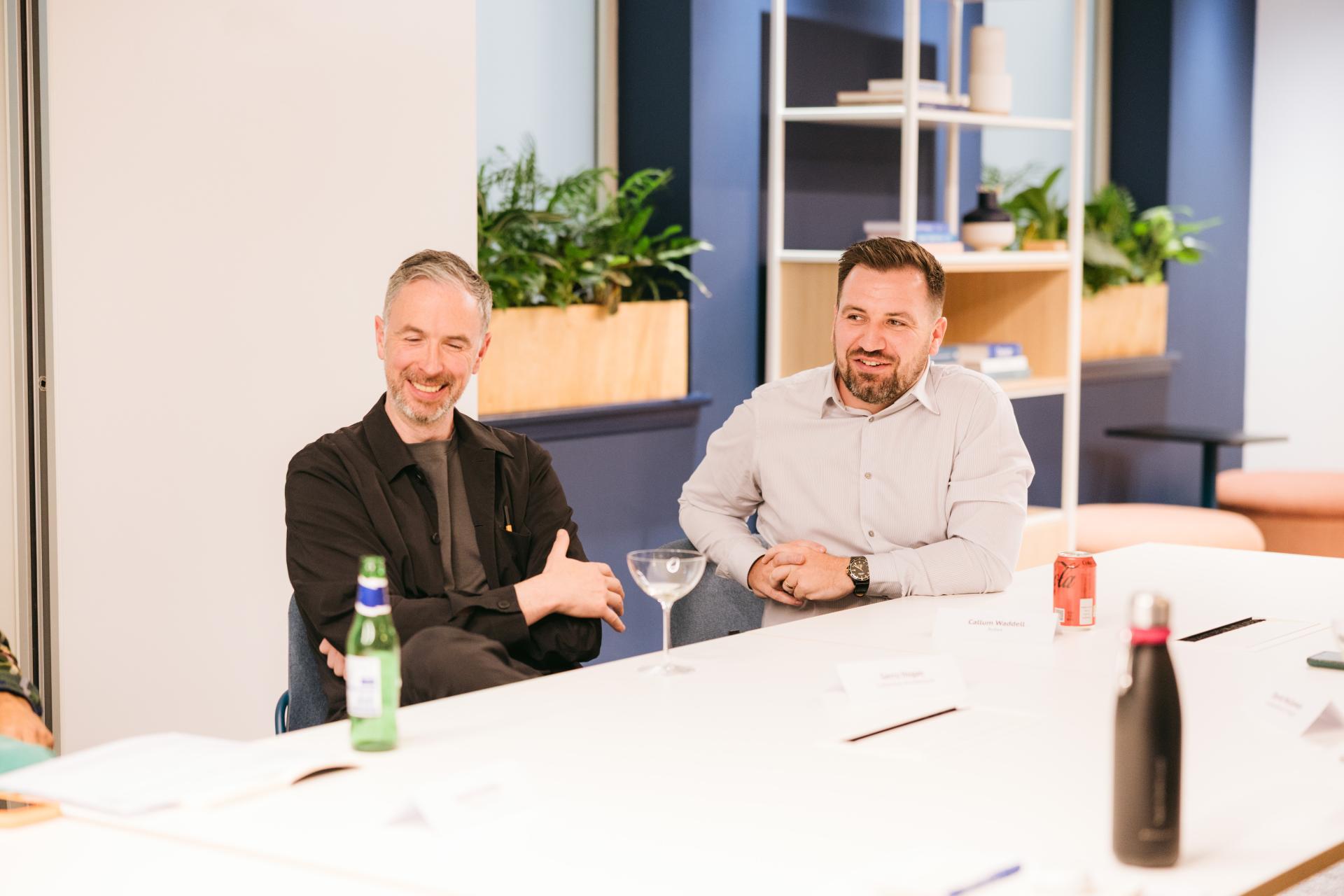
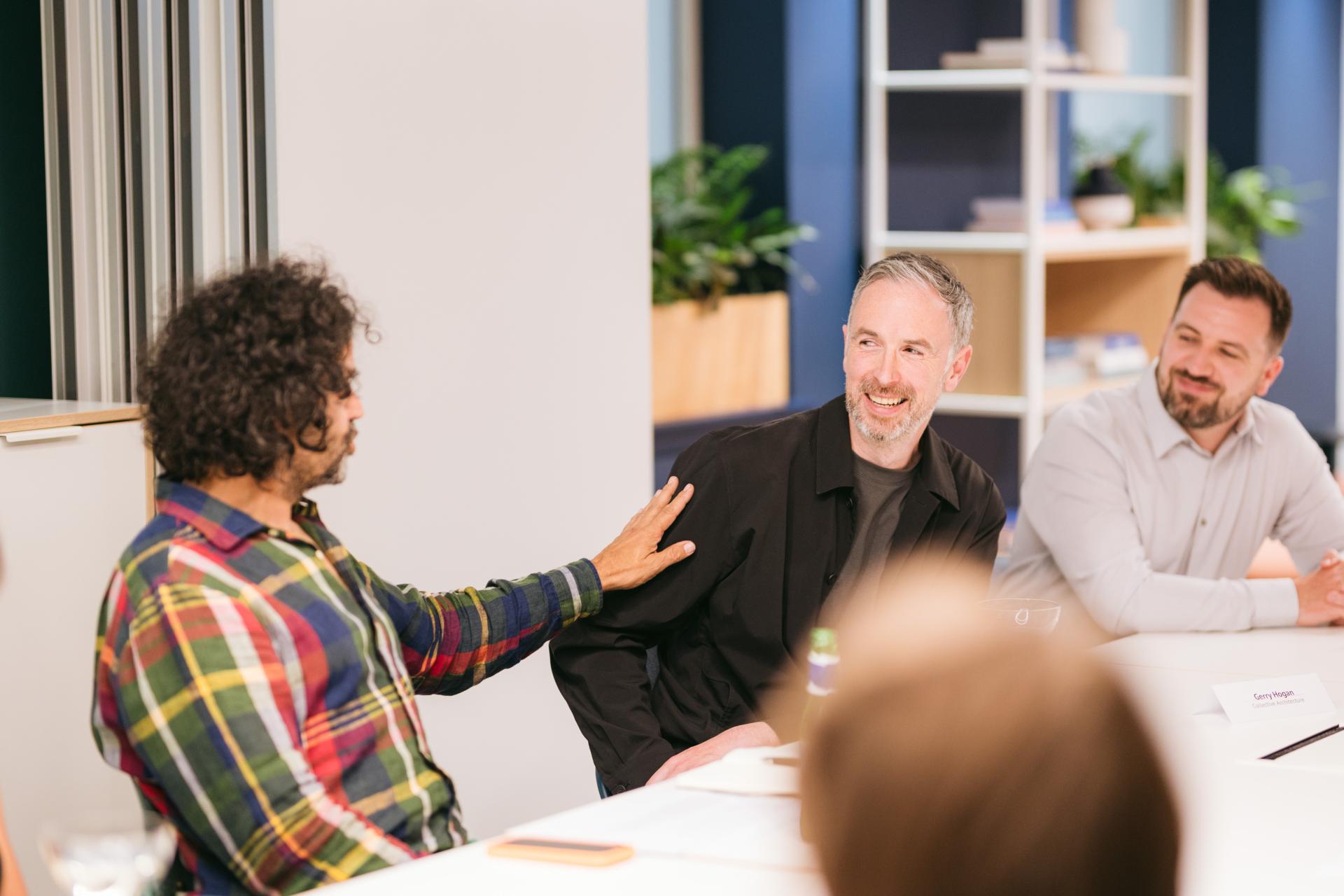
“So you’re saying AI could help with the human side of business?” chair David asked.
“It forces us to look at the human side of our business more closely”, Gerry added. “I think those people who are interested in architecture, design and engineering will actually want to speak to us more and be closer to us, and I think that's going to put project management under threat a little bit.”
“Do you agree with this?” David Smalley probed.
“It’s short to medium term”, said David McGowan. “The concern is that architecture, construction, delivery becomes a product - and it's completely within technology.
“If you think about other sectors, construction is very slow to adopt. Think about logistics. Think about travel, transport. That is able to really utilise data decades before construction catches up. And there are companies like Autodesk that are investing billions of dollars each year into being a one-stop shop. So, the concern is in the future it will become a one-stop shop, it will become a purchase. You won't require a design team to coordinate.”
In the future, David believes there will be “a catalogue of hundreds of thousands of buildings” with the data and the parameters of the brief that resulted in those buildings, you will be able to “crunch the data for any sector output.”
Where then will architects fit? Will people skills come to the fore? David thinks not. “I think that’s an idealistic architectural view on the industry. The actual thing that we're missing is a client's point of view.”
This may begin with public sector projects at first, he said, informing regulatory and legislative reform and policy – “because it's risk averse”. “And if a technological product or service, maybe subscription-based, can provide you risk certainty, there are many, many, many clients in this industry that will want that.”
Peter Hendry agreed with much of David’s argument in principle. But the challenge, he believes, is when that’s related to site. “I think if you were manufacturing it, and it was delivered in the back of a lorry – ‘in a perfect world’. In my world, when you go to site, modular doesn’t work because it’s not what they said it was. Plus, we also need people to interpret the data.”
“Is it more an overseeing role?” chair David suggested.
“Yes”, answered Peter, “like a master builder.”
The point was also raised that architecture has a cultural place, akin to art. It’s not just about data crunching. “We’ll probably always look for that human authorship in the same way you would with a novel or a painting.”
Alex believes there are certain industries where the impact of automation can be clearly seen in this way – automation versus human skill. Furniture for example – “If you want good furniture, there's bespoke, crafted, highly specialised services that you can pay significantly more for.”
In architecture, rather than deter any kind of flair, Alex thinks that automation could apply to functional aspects such as material passports, for sustainability and energy performance. “The more standardised something is, the better the results”, he commented.
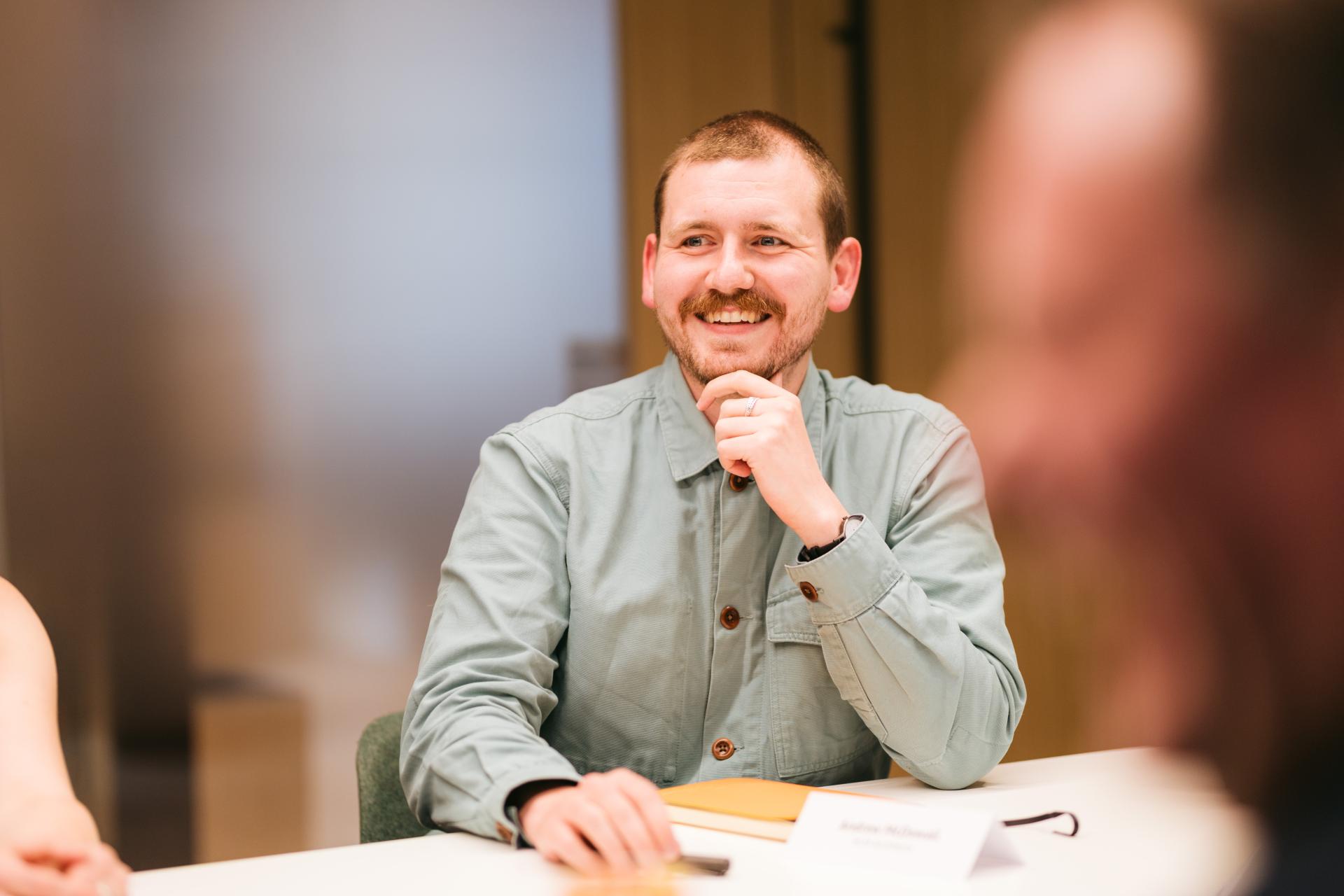

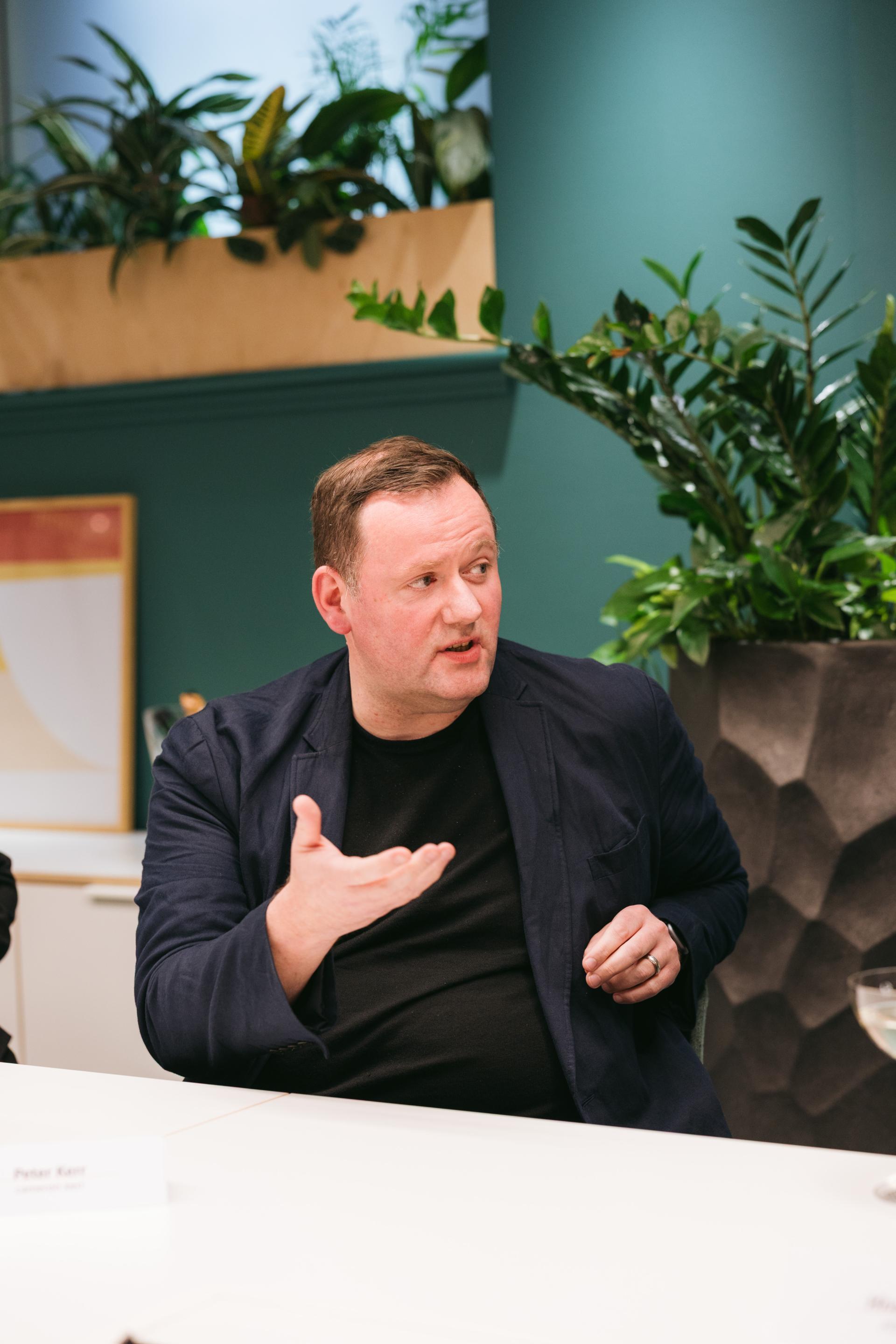

Ethical implications
“What are the ethical considerations of AI?” David Smalley asked.
“Are we shooting ourselves in the foot?” David McGowan suggested. “I’m guilty of it because I’m so fascinated, but are we just carving off little bits?”
“One of the things I’m working on at the moment”, Peter Kerr said, “is a training manual around the evolution and access to technology. One of the issues I’m witnessing is that for younger graduates coming through, they struggle to memorise and regurgitate. They need access to the Internet for information. They don’t want to read hardcopy material.
“So in our business, we’re giving people the tools to learn as well as providing the ethics in how they can use AI, and how the business is using AI so we can establish any issues to build up a training profile such as, "That person's asking this question a lot”, then we can provide bespoke training.”
“I think the education perspective is crucial”, Hiva added. “Many students are not using AI at all. But AI needs to be introduced within education to avoid plagiarism and to understand process rather than just product.”
Lizzi shared here the need for “responsible AI – use it for the right reasons.”
Peter Hendry asked whether organisations should potentially be audited on their AI use? Include it in their carbon emissions data?
“Could the poor use of AI become ‘looked down upon’ like single-use plastic?” David Smalley asked.
All were in agreement it could - and should. Though through trial and error many of us likely fall into that category currently, whether knowingly or not.
Gerry makes an argument in relation to the energy point, “it's very easy to be holier than thou and use it as a stick to beat someone with. But I think we do have an obligation to try and understand how we're using it, and what the energy implications are.”
Looking at Scotland specifically, he notes that while Ireland uses around 400 grams of kilowatts per hour for electricity, Scotland uses between 10 and 70.
“It’s a call to say, ‘bring the data centres to Scotland.’ We should all be pushing for inward investment. The more we talk it up, the better it is.”
Andrew feels there could be ethical implications on a global scale to this point – “will it be a race to the top for those who have, and those who have not? Can everyone have access?”
On the theme of concerns, Peter Hendry brought up the potential for job losses - "People may now be replaced by bots."
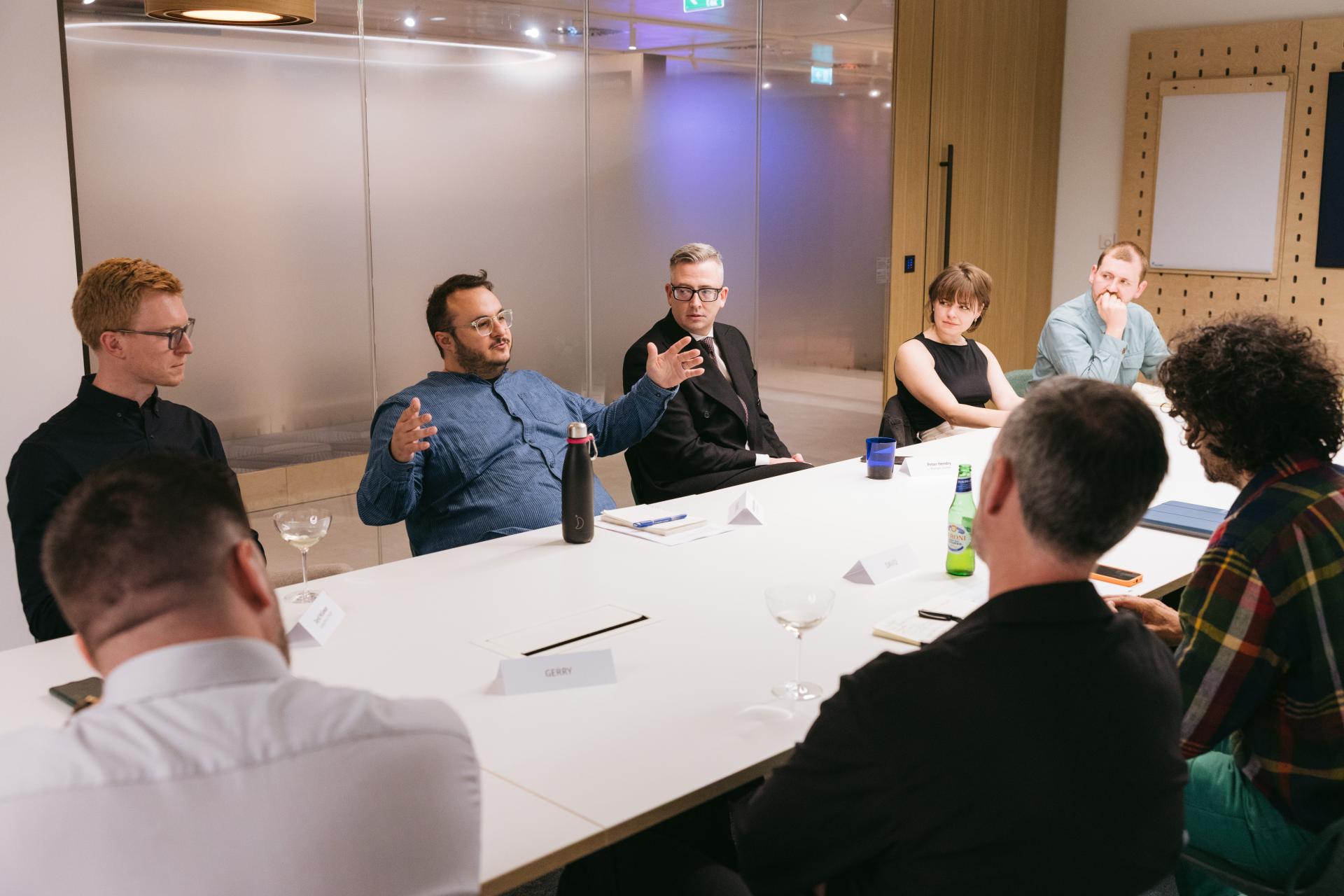
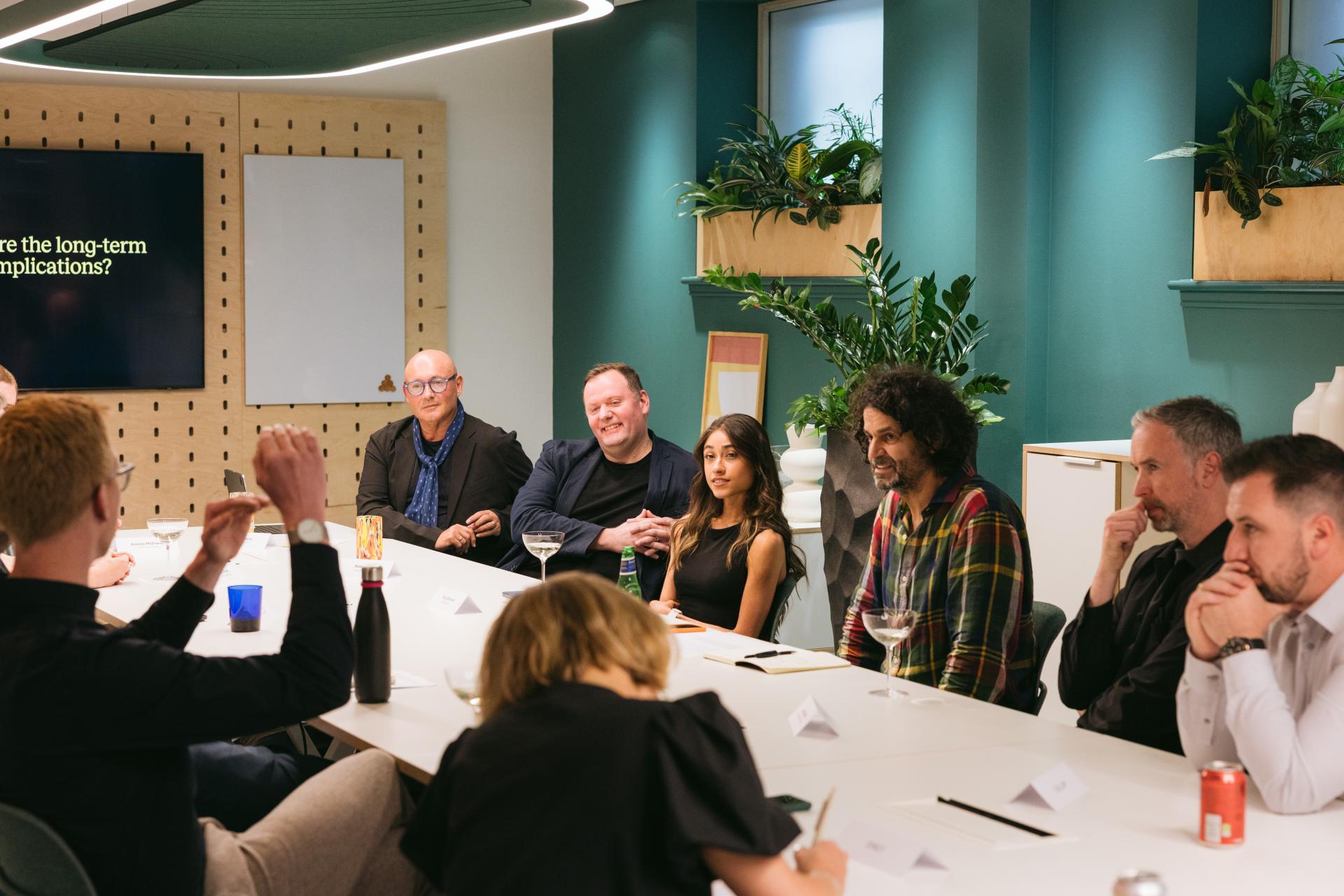
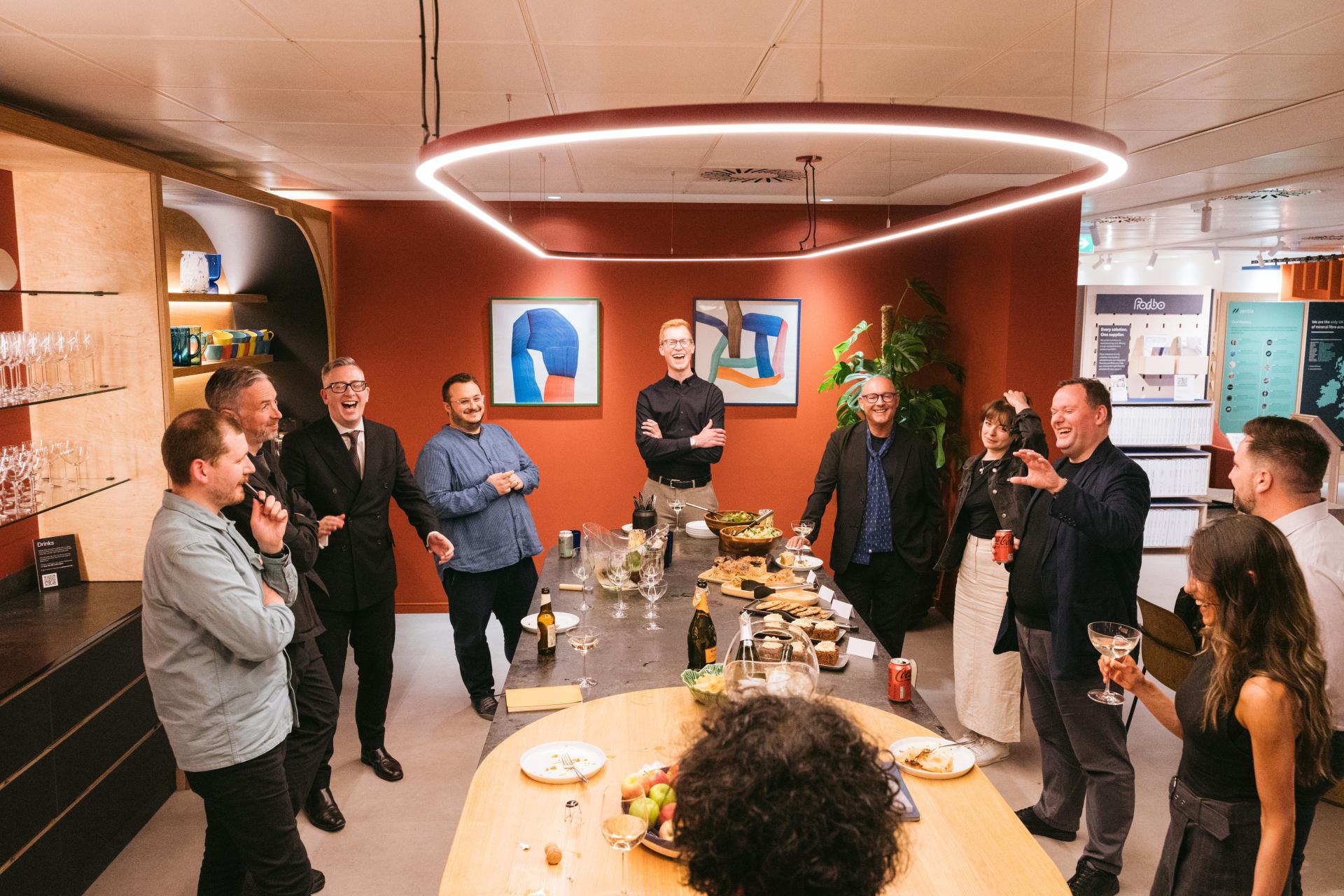
What is the future of human intelligence?
“Critical thinking”, David said, “is that our hope for the future as humans?”
“No”, answered David McGowan. “I'm fascinated by it, but it's how we define intelligence. For centuries, we've defined intelligence generally on information recall and the ability to critically analyse different information inputs to then get an output. That is considering as many inputs as you can, and you would show your intelligence in those kinds of ways. We're already there from a technological point of view. So what's the future of intelligence? How will we value intelligence?”
“Well, comprehension is very different from memorisation and interpretation”, added Peter Kerr. “AI is memorisation and interpretation. Comprehension is putting things together. Problem-solving is all about comprehension.”
On the point about comprehension, David Smalley asked, “Would AI be able to create something with subtleties about equality and sustainability? Or would it go straight to what everybody else has done so far about profitability?”
“There’s bias – remember how it’s built up, it’s based on mass information”, Peter Kerr continued. “It’s taking everything generalised. So there's no minority thinking.”
“There’s no maverick”, Peter Hendry offered, “or path finder”…
… "going back to the point about critical thinking”, said David Smalley.
“Will we get to a stage where work will be marked as ‘human’?” he asked.
In some areas, yes, the group believe, where ‘human-made’ will be the preference. Though the point was made people should already be adding a note to say ‘generated by AI’ if that is the case.
David McGowan said that in some cases, a practice must confirm that they’ve “not used AI in the production of a bid”. He believes this could be a signal.
“Where is the line there though?” asked Peter Hendry, “If you’ve written the thousand words and asked AI to tidy it up for you?”
Bringing the conversation to a close, for now, David Smalley asked, “Who’s governing AI?”
Andrew mentioned an event he attended called Pint of Science, where someone’s job was around AR (Augmented Reality) – not in terms of creating it – but in liaising with lawyers on an international scale about what’s coming next.
“We can’t keep up with how fast this moves”, he commented.
International legislation was highlighted as being sparse – especially in the UK.
John made the last point on commerciality potentially dampening creativity when it comes to AI. “I think we all want to still feel humanly and creatively relevant.”
A huge thanks to all the guests who joined us, and to our supporters for this event, Autex Acoustics – Partners at both Material Source Studio Manchester & Glasgow.
All image credits: Lewis Cannon







